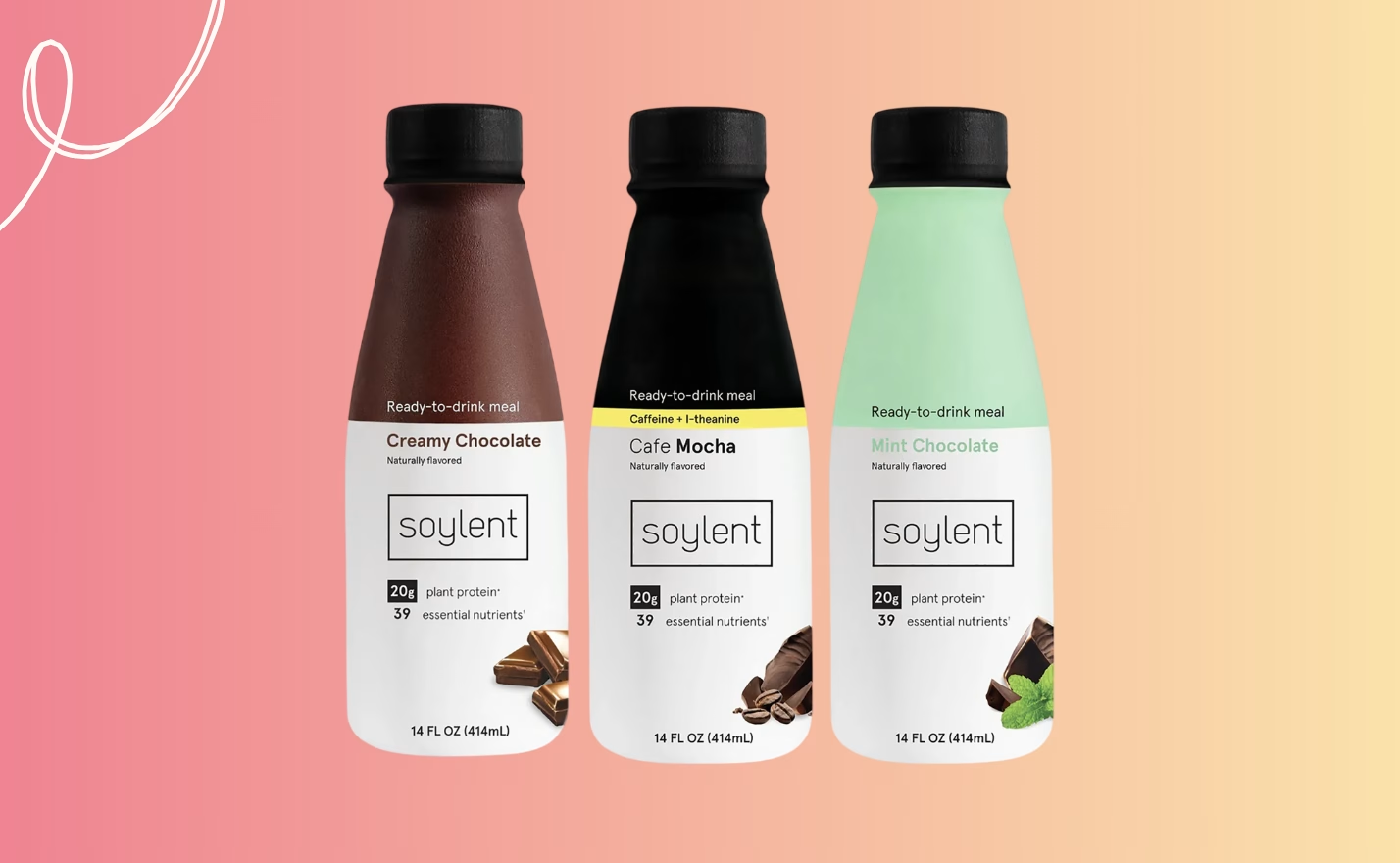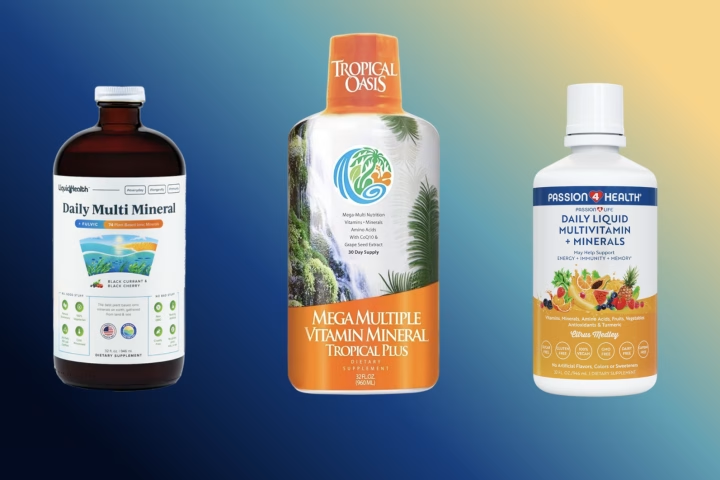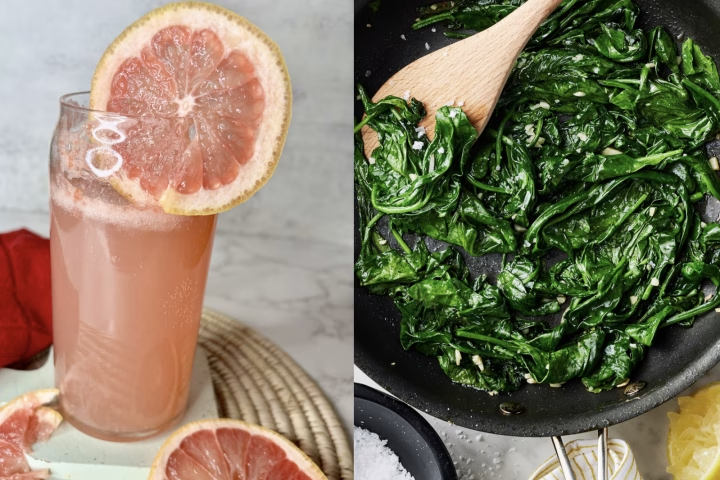Like many people who are too busy juggling too many things at once, I sometimes lack the energy or time to prepare natural food. Skipping meals has become too common for me, and as someone who can’t afford to lose weight or get more nutrients, I had to find a more effective system. That’s how I ended up in the world of meal replacement products. Oh no!
Soylent was my starting point. I liked the convenience, especially the powder — just throw it in a blender and you’re done. But after a few weeks, I started to wonder what I was actually giving my body. Soylent, like many others, is made from refined starches (maltodextrin), canola oil or MCT oil, and isolated proteins (mostly pea). All of this is enriched using scientific methods, but at the same time… it undergoes intensive processing. There are legitimate concerns about blood sugar spikes, arterial stress, and even a potential increase in IGF-1 levels due to excess leucine, which is associated with an increased risk of cancer.
So I carefully studied the information. I read labels, looked through discussions on Reddit, watched reviews on YouTube, and started trying alternatives. Here’s what I found.
Kachava
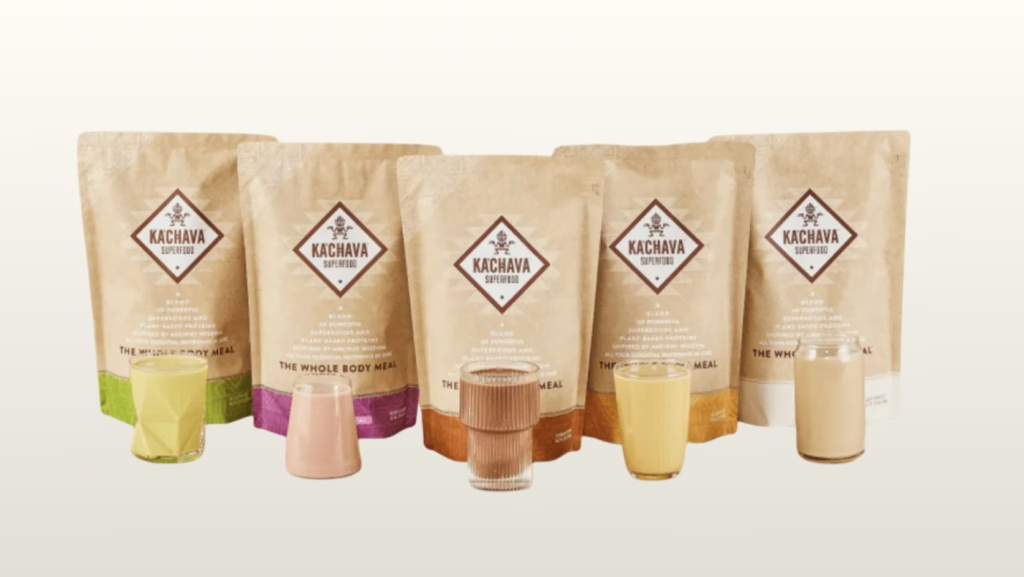
Definitely the most “natural” formula out there. They use natural ingredients like carrots, beetroots, berries, and greens. You can literally taste the difference. It has antioxidants in a natural matrix, not just isolated compounds. The disadvantage? It’s only about 250 calories per serving, so it’s not a complete meal unless you increase the amount of it (and when you do that, the saturated fats from coconut and MCT oil quickly add up). But still, it’s an important step in the right direction for your health.
Jimmy Joy (aka Joylent)
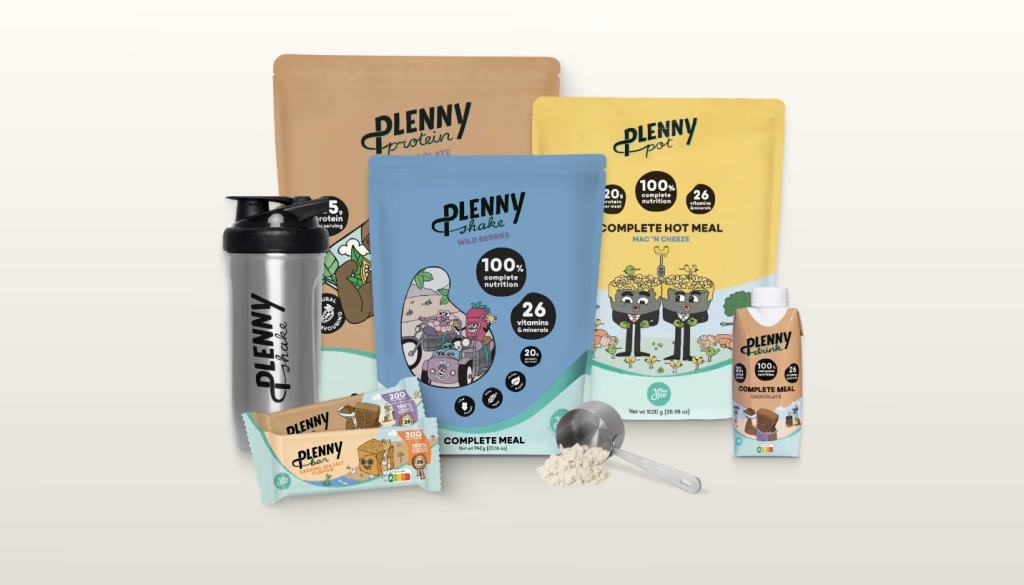
It’s no wonder that this product is so popular in the community. Someone on Reddit described it as the only powder you can drink without vomiting. The price is reasonable (about $15 per kilogram, which lasted for almost two weeks of lunches), and the Plenny Shake line has solid macronutrients and, what’s important a lot, antioxidants. Moreover, it has bars and drinks as options. I couldn’t agree more that the name is horrible, but the formula is excellent. There are special discount offers if you are just starting out, as well as door-to-door delivery, so at least I recommend visiting their website.
Huel
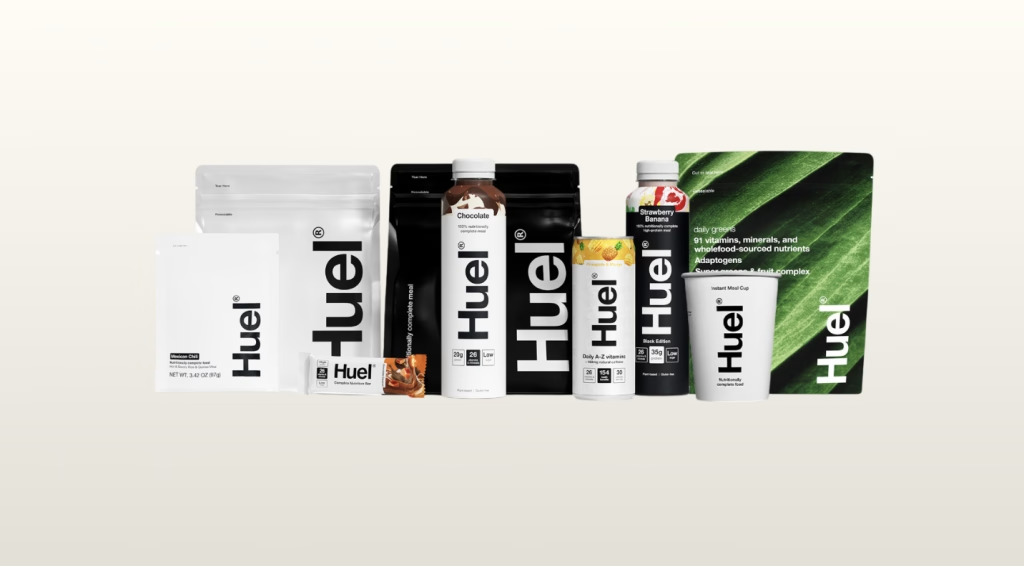
Our opinions about this product are quite controversial. Huel has a huge fan base, especially thanks to their Huel Essentials line — it’s affordable and better than Soylent if you need macronutrients and vitamins in one complex. But what about the taste? I’ve seen people dilute it 50/50 with Soylent to make it drinkable. The MCT oil and high sweetness may not be to everyone’s taste. Additionally, some say it’s thick and sticky. Honestly, I feel neutral about it — I liked the nutritional information, and the texture and sweetness were nothing special or too disgusting for me.
Mana (Drink Mana)
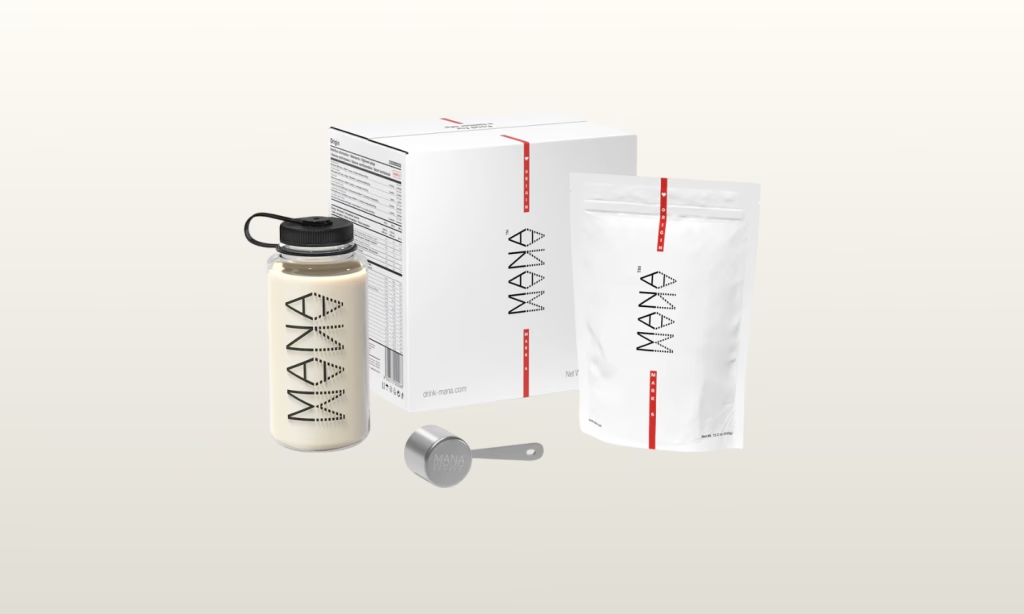
I used to like Mana for its neutral texture and almost absent flavor. But after a recent formula change, some people (including me) complained of gastrointestinal issues — probably due to some major changes in the ingredients. It’s still worth trying, but you’d better start with a sample. The ingredients are similar to Soylent — refined oils and isolates — so it may not solve the health issues I described earlier.
Queal
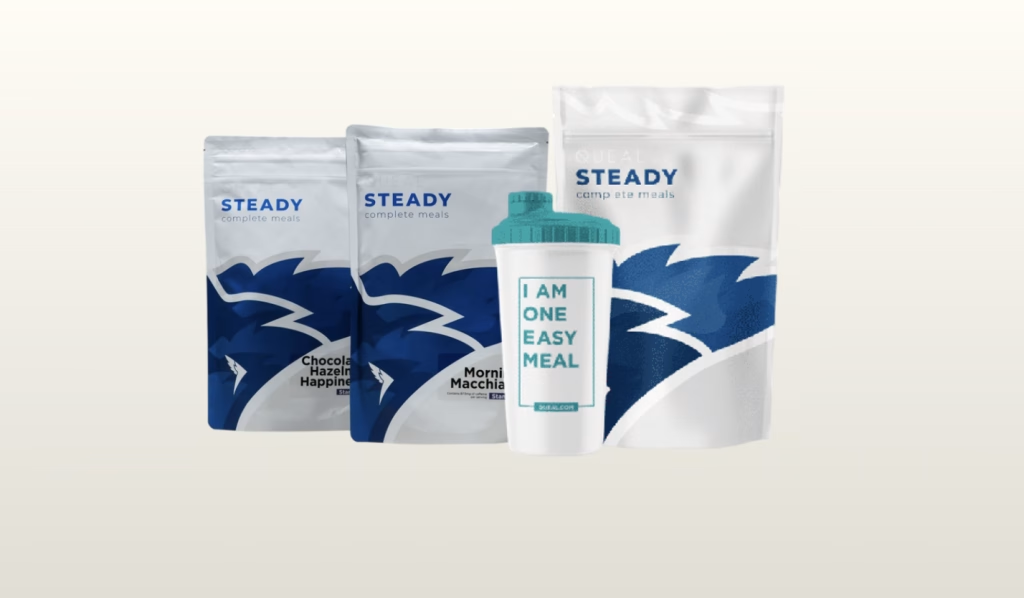
Queal is constantly praised for its taste. If you’re sensitive to taste, this may be your best option. However, there is one huge drawback: shipping to the US can cost $40–50, which is a deal-breaker for me. If you’re in Europe, you’re lucky to try this product without extra payments for shipping. Anyway, I always recommend checking their official website… We live in the digital world and things are changing non stop. Tomorrow they may start shipping to the US for free.
Jake Shake (by Jake Food)
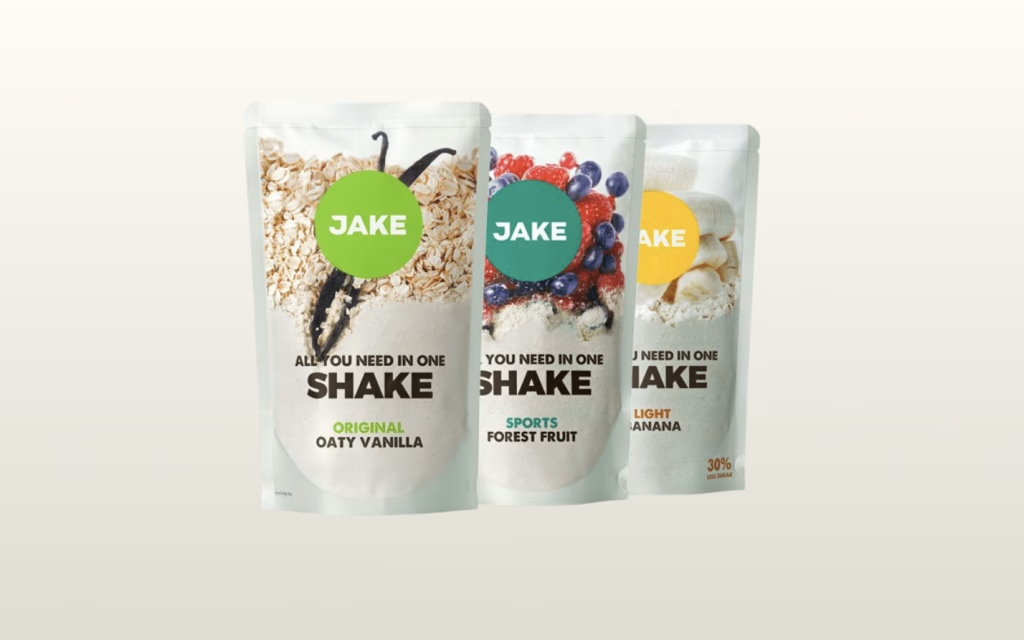
This is definitely not the most well-known and popular brand, but it has very high quality. I heard about it from someone who eats it for breakfast and then adds Huel Hot & Savory for dinner. This combo scheme intrigued me. The formula is well-balanced, and the taste is simple, without the strange Soylent’s aftertaste. The ingredients scream that the owner took the creation of his product very seriously.
Keto Chow
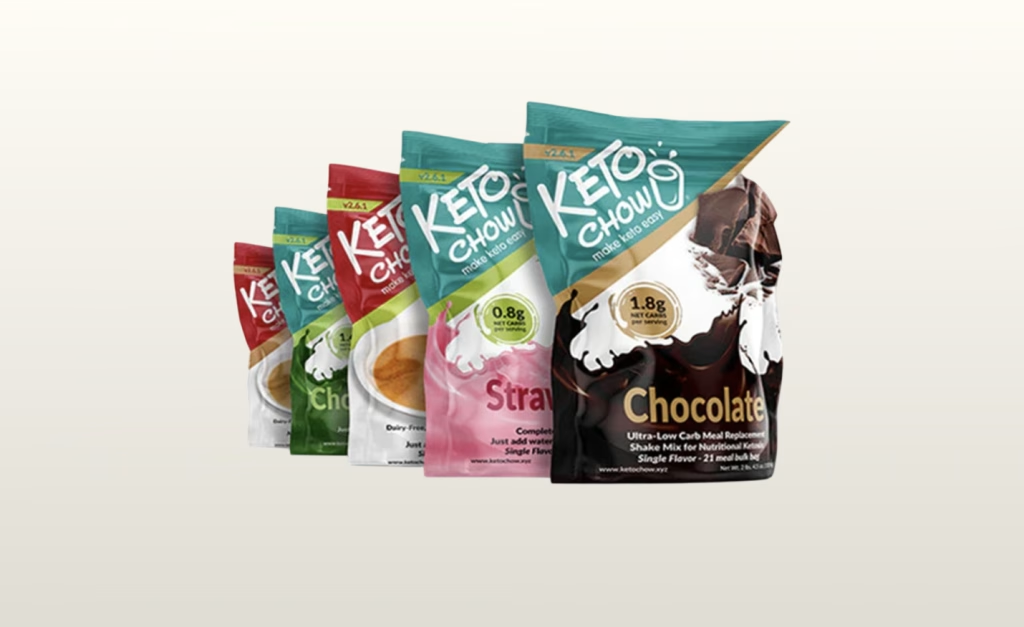
This recipe is created for people on a keto diet, but you can adapt it to suit your needs. Their website is excellent, and customer service gets great reviews (I’m not joking 71% on reviews.io). You just need to add your own source of fat (such as cream or butter). It gives more flexibility but also requires more preparation time. I don’t follow a keto diet, so I don’t use it often, but if you do, this is probably the best option.
Equate Pea & Quinoa (Walmart brand)
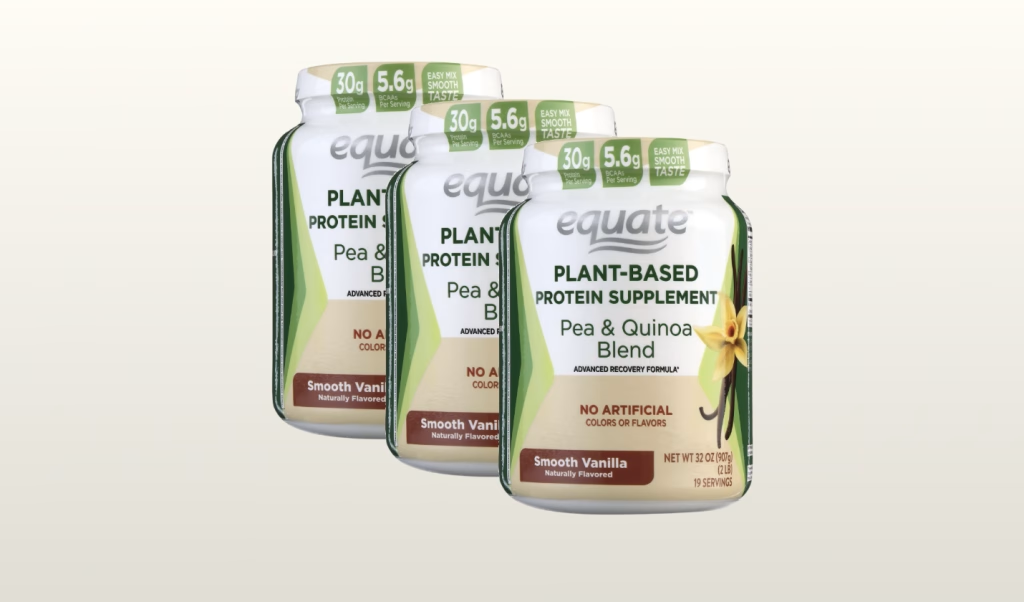
No one expected Walmart to have a good meal replacement, but one of my readers suggested this product to me: Equate Pea & Quinoa with vanilla flavor. And it turned out to be a surprisingly good product! 30 servings for about $20. The taste is similar to SunWarrior (if you’ve tried it), and it goes well with banana or oat milk. Of course, it’s important to understand that this is a budget meal replacement, and it would be wrong to expect the impossible from it.
Ambronite
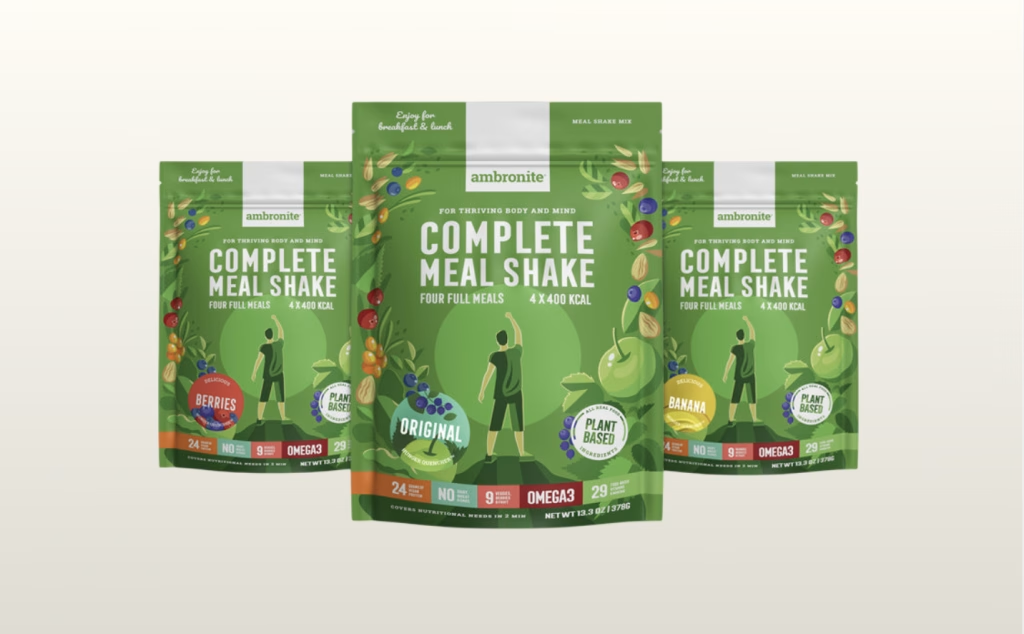
If you want something very clean and plant-based, without harmful ingredients, you might want to try Ambronite. It’s rich in organic greens, nuts, and berries. The only thing is that it’s not cheap — the price per serving is over $6 (which is quite pricey compared to competitors). I’ve only tried a sample and liked it, but I can’t justify the price for daily use unless you’re a huge fan of all things natural and plant-based.
Naked
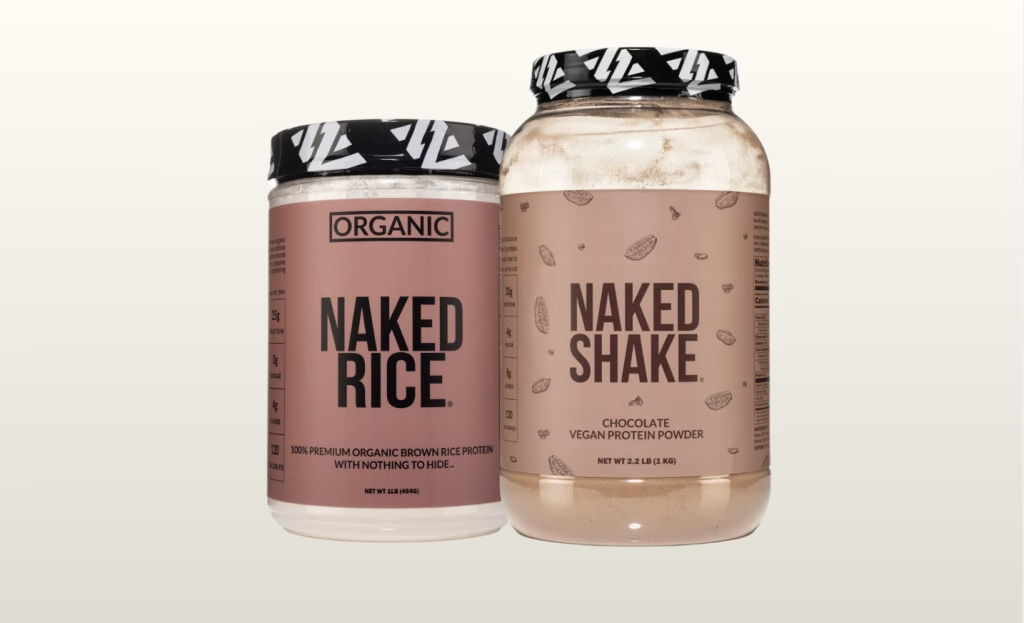
These products are great, especially for the gym, and the brand’s main slogan is “we have nothing to hide,” which is amazingly alluring. If we talk about the ingredients, there are only a few whole ingredients — whey (or plant) protein, complex carbohydrates, and a little bit of fiber. It’s not a complete multivitamin complex like Huel, but it’s great if you’re already taking supplements and just need calories and macronutrients. It has a smooth texture, isn’t too sweet, and mixes quickly.
Rootana
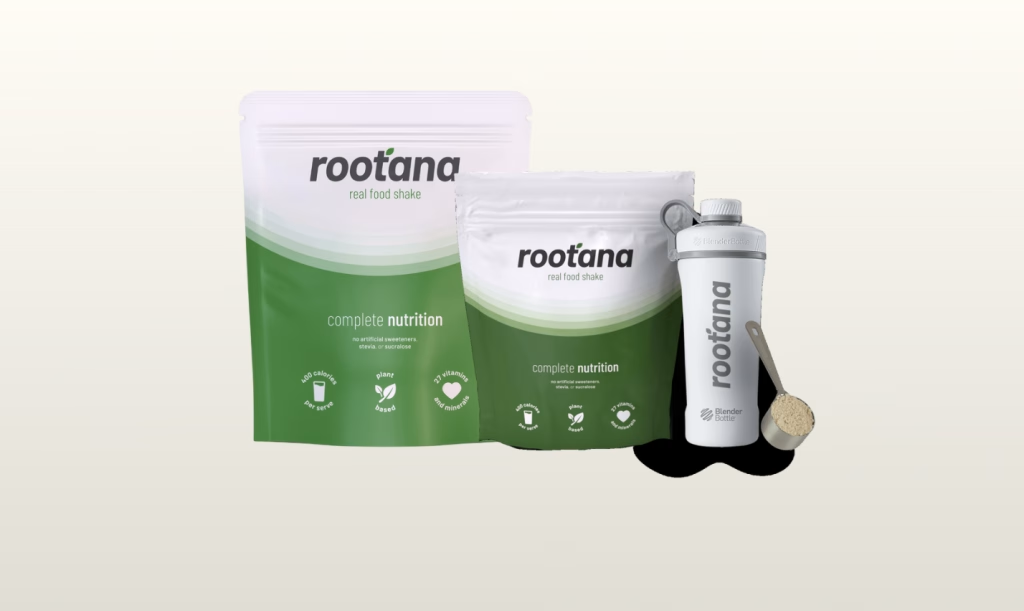
If you are a fan of Huel’s core idea but absolutely dislike the taste of artificial sweeteners like sucralose, then you’ll love Rootana 100%. This brand focuses on “real food” without additives, and the taste is closer to neutral, mild, with a slight oat flavor. The formula is perfectly balanced: 400 kcal per serving, 20 g of protein (peas), healthy fats, fiber, vitamins, and minerals. It mixes well with milk, isn’t too sweet, and is an excellent option for those who appreciate clean labels.
Lyfefuel
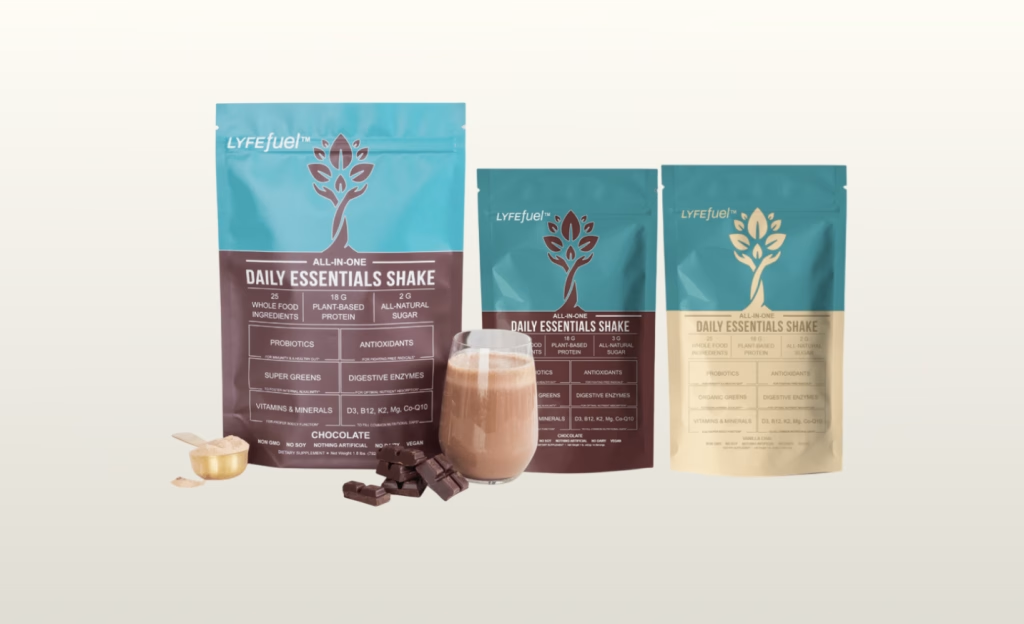
Lyfefuel claims itself not just as a meal replacement, but as a “functional superfood shake” — each serving contains a huge amount of micronutrients, antioxidants, plant proteins, and even enzymes (which is quite curious). The taste isn’t most intense, but rather mild and “healthy,” especially when mixed with plant-based milk. It’s good for those who are focused on a healthy lifestyle and getting benefits from it rather than maximum calorie intake — only ~150 kcal per serving, so it’s not a complete meal, but rather a “smart snack” or addition to breakfast/dinner.
Ample
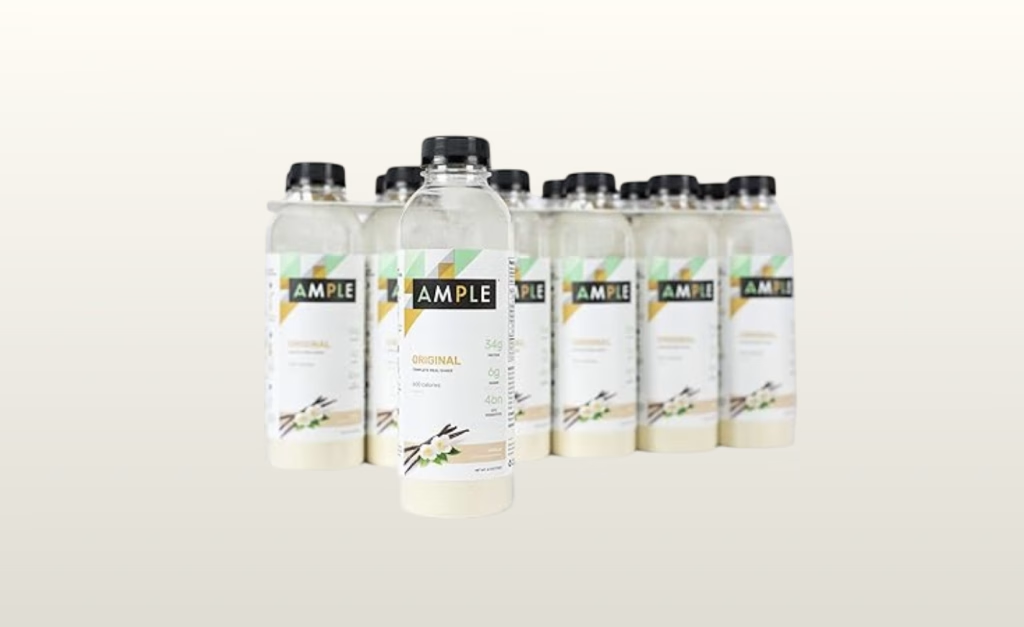
Ample is a premium shake if you’d prefer something between “tasty” and “healthy.” It contains coconut oil, herbal whey or plant protein, probiotics, fiber, vitamins, and healthy fats. The flavors (especially vanilla and chocolate) are natural, without any chemical taste or unpleasant smell, and are nice to drink even without any additionals. The price is slightly above average, but the quality is excellent. There are several options: original, keto, and vegan. To my mind, the original is the most appealing! It comes in convenient packaging—individual bottles that you just need to fill with water.
Super Body Fuel
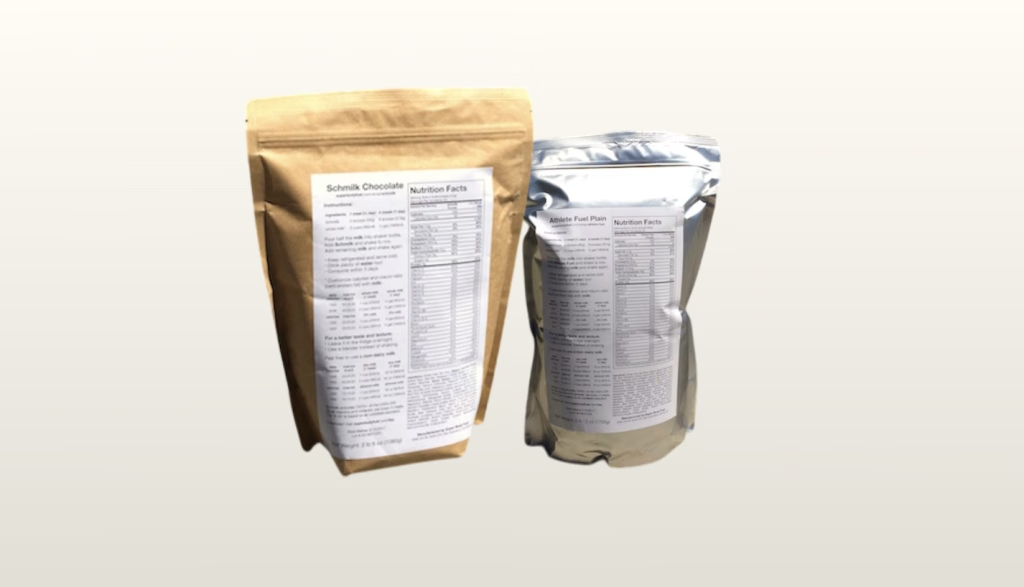
This product is a lifesaver for those who have given up on Soylent and is a real favorite of the Reddit community. They have different formulas: Milk Fuel, Athlete Fuel, and Keto Fuel. The product is affordable (about $1–$1.25 per serving), produced in small batches, and its founder is very active in the community. I prefer its taste which is milder than Huel or Soylent.This product doesn’t try to be a milkshake, it’s just neutral. Is that good or bad? It’s up to you to decide.
Make it yourself? No, not anymore.
I used to make Soylents myself using the People Chow/Hacker School recipes. I mixed powders, weighed oil, and noted down macronutrients. It was quite fun but a little bit tedious… until I got tired and had no time for that. And now? I don’t care. Work, sleep, and the desire not to be a complete weirdo— convenience is more important. That’s why all of the above listed are powdered options that you can just mix and use.
Conclusion
If I were asked right now for advice about choice, taste, and price:
KACHAVA wins for product quality.
Jimmy Joy wins for everyday use.
Naked nutrition is a simple and reasonable option.
I will never get only Soylent again. The metabolic risks are not worth it, especially in the long run. And the taste? Frankly, I don’t really like it now, especially when compared to competitors. It turns out that taste cannot be changed in the same way that macronutrients can be changed.
If you’re thinking of getting meal replacements, try them first. We all have different tastes and digestion processes. But do yourself a favor and don’t rely exclusively on them. Despite all these advanced powders and shakes, real food is still better.
